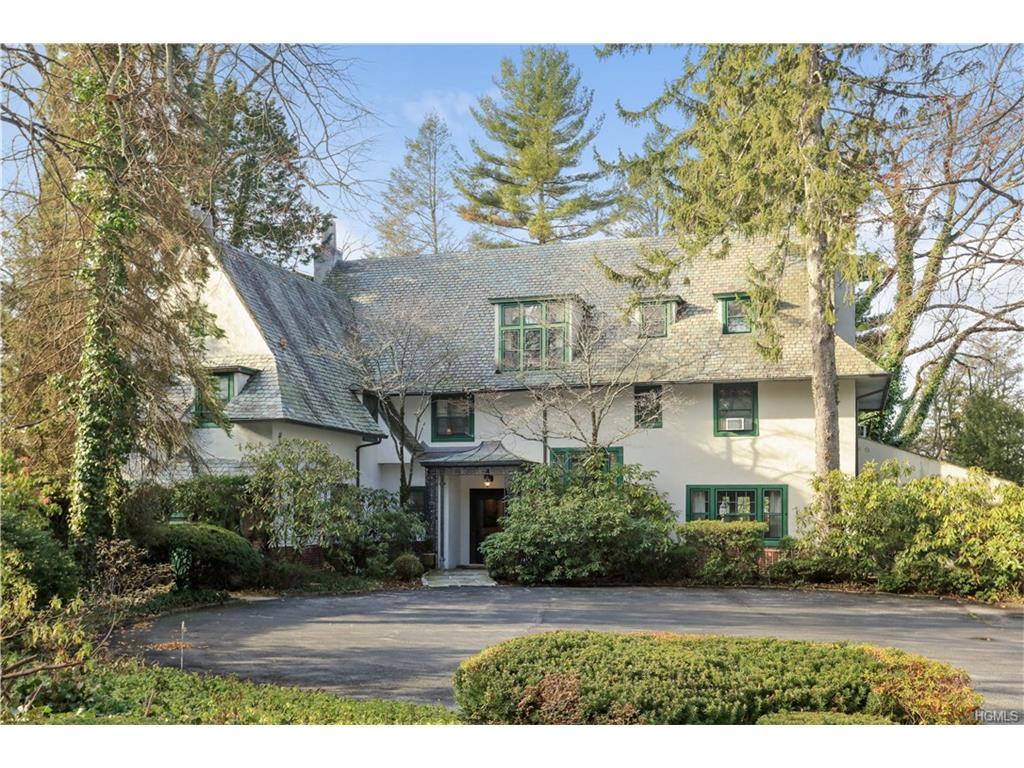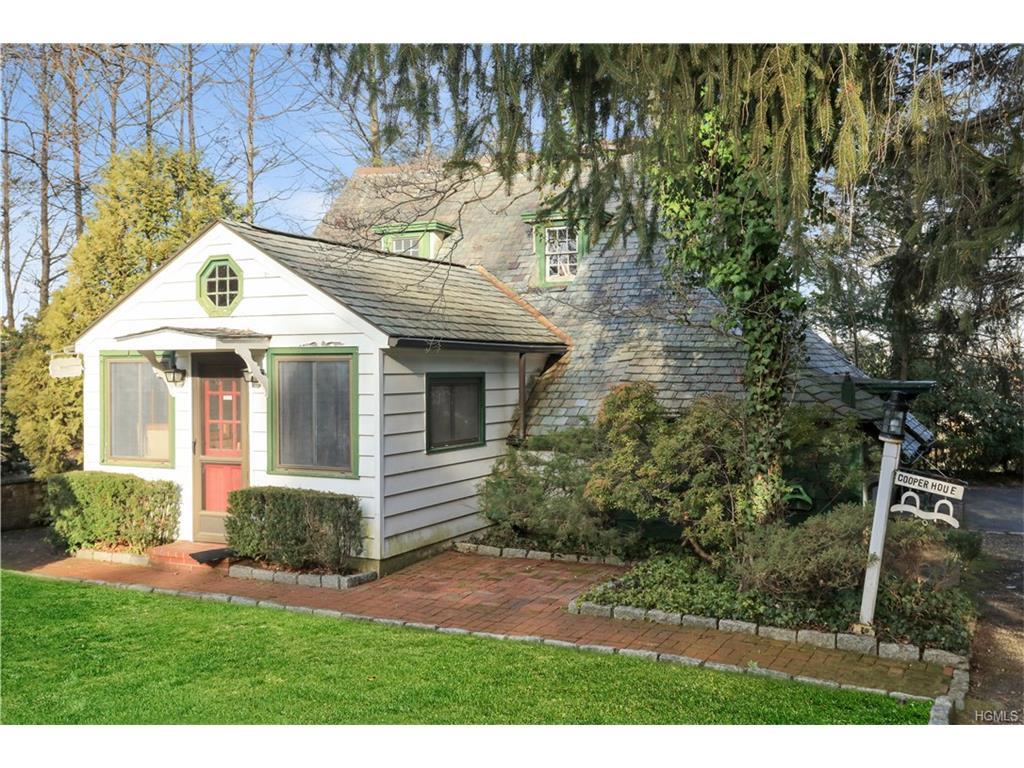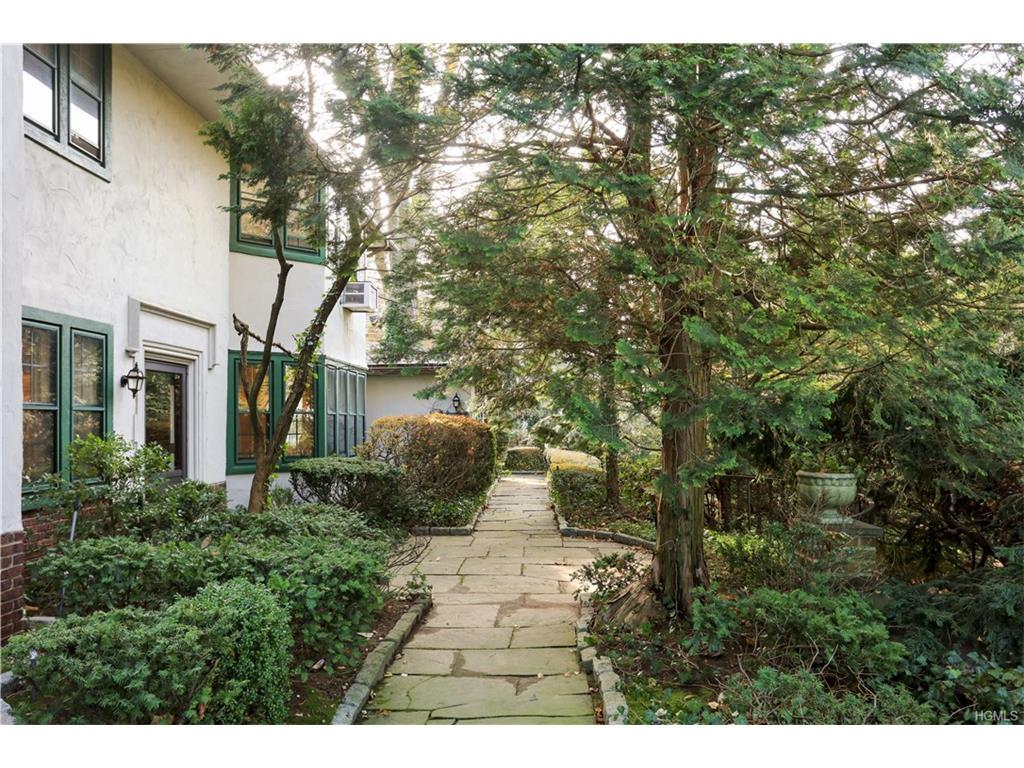26 Cooper Road Stands, For Now
- Tuesday, 18 July 2017 15:10
- Last Updated: Tuesday, 18 July 2017 15:23
- Published: Tuesday, 18 July 2017 15:10
- Joanne Wallenstein
- Hits: 7685
 A 1917 Country style home and garage (1926), thought to be designed by architect Frank Joseph Forster could be spared from demolition if a decision by the Committee for Historic Preservation (CHP) stands. On July 11, by a vote of 5-2, the committee voted to deny an application to raze the house and garage at 26 Cooper Road finding that the home meets one of the criteria for preservation, i.e. "That the building is the work of a master and embodies the distinctive characteristics of a type, period or method of construction that possesses high artistic value."
A 1917 Country style home and garage (1926), thought to be designed by architect Frank Joseph Forster could be spared from demolition if a decision by the Committee for Historic Preservation (CHP) stands. On July 11, by a vote of 5-2, the committee voted to deny an application to raze the house and garage at 26 Cooper Road finding that the home meets one of the criteria for preservation, i.e. "That the building is the work of a master and embodies the distinctive characteristics of a type, period or method of construction that possesses high artistic value."
In a Memorandum Decision written by CHP Chair William Silverman, it states that the committee found that architect Frank Joseph Forster was indeed a master and that the home was an excellent example of Country style architecture.
About Forster, they said,
"Frank Joseph Forster is a famous architect with a large body of impressive work. Born in New York City on December 12, 1886, he studied architecture at Cooper Union from 1903 to 1908. This was followed by a year of study in Europe and after a short partnership with Edward King in 1910, he practiced under his own name beginning in 1912.
Forster developed a reputation as a specialist in country house designs. Indeed, the Village of Scarsdale Cultural Resource Survey Reconnaissance Level Report refers to him (p. 29) as "an expert in the design of English-inspired houses" and quotes from his written work in describing that style of architecture (pp. 29, 34, 42). Aside from this property, the CHP is unaware of any other Forster designed structures (still standing) in Scarsdale.
The importance of Forster's work in American architecture is abundantly clear. The New York Times reported that Forster was one of three grand prize winners of the 1929 National Better Homes Architectural Competition, describing him as "a New York architect who has, through his country-house designs, established a national reputation as a specialist in residential work." His excellence was recognized by the Architectural League medal for domestic architecture in 1927 and 1929 and the Better Homes in America medal in 1933."
The architect's name did not appear on the plans for the 1917 home as was the custom at the time. However, Forster was called on to build the garage nine years later and the committee noted the architectural similarity between the two structures, which include , "chimneys, sagging roofline and gables." Moreover, they deemed it unlikely that an architect of Forster's stature would have undertaken the garage unless he had designed the original house.
 The committee found that "Both structures are dominated by a steeply pitched, cross-gabled roof with mock-sagging at the end of the roofline and dormers. The arrangement of windows of different sizes and shapes as well as the prominent chimneys and chimney pots on the main House are also classic traits of this style home. Significantly, both structures have not been materially altered since original construction."
The committee found that "Both structures are dominated by a steeply pitched, cross-gabled roof with mock-sagging at the end of the roofline and dormers. The arrangement of windows of different sizes and shapes as well as the prominent chimneys and chimney pots on the main House are also classic traits of this style home. Significantly, both structures have not been materially altered since original construction."
Since Forster designed no other existing homes in Scarsdale, the committee believed that allowing it to be demolished would result in a significant architectural loss to the Village.
Therefore the application was denied. However, the owner does have the right to appeal to the Scarsdale Board of Trustees.







